Traveling to exotic locations like Ethiopia can be incredibly rewarding, offering unique cultural experiences and breathtaking sights. But before packing your bags, it's crucial to be informed about the current travel safety conditions in the country.
Known for its ancient history, diverse cultures, and stunning landscapes, Ethiopia has become a popular destination for adventurous travelers. However, concerns about safety often arise due to various factors.
This article aims to provide up-to-date information on traveling safely to Ethiopia in 2024. We'll explore the current political climate, essential health and safety precautions, transportation and infrastructure conditions, as well as useful insights into local customs and some must-visit destinations.
- Current Political Climate
- Health and Safety Precautions
- Transportation and Infrastructure
- Local Customs and Etiquette
- Recommended Destinations and Activities
Current Political Climate
Ethiopia has seen several significant political events in recent years that have shaped its current climate. Prime Minister Abiy Ahmed, who came into power in 2018, initiated a series of reforms aimed at opening up the political landscape and promoting peace in a region long plagued by ethnic tensions and conflicts. His efforts even earned him the Nobel Peace Prize in 2019. However, progress has been uneven, and challenges remain. The Tigray conflict that erupted in late 2020 has been particularly significant, drawing international attention and causing widespread disruption.
The conflict has involved the federal government and forces in the Tigray region, leading to humanitarian concerns and impacting the safety of certain areas. Despite this, major cities like Addis Ababa and tourist hubs such as Lalibela and the Simien Mountains have remained relatively stable and accessible to travelers. The government has made concerted efforts to restore peace and order, although sporadic skirmishes can still occur, particularly in more remote areas.
In recent months, peace talks have shown promise, leading to a reduction in hostilities in Tigray. The Ethiopian government partnered with international organizations to provide aid and rebuild affected areas. However, it is crucial for travelers to stay updated on the news and heed travel advisories. Check the U.S. Department of State or the UK Foreign Office websites for the latest information.
"Travelers should avoid areas where there have been recent skirmishes or military activity, particularly in the northern regions," says Robert Moore, a travel security analyst. "Staying informed and cautious can make a significant difference."
Other regions such as Oromia and Sidama have also experienced unrest, primarily due to ethnic and political tensions. Although tourist attractions in these areas are high on many visitors' lists, caution is advised. It’s always safer to travel with a local guide who understands the current situation on the ground.
Government and Security Measures
The Ethiopian government has invested heavily in improving security infrastructure. Increased presence of security personnel in key areas and strategic checkpoints have been set up in regions with heightened risks. The government has also launched campaigns to ensure the safety of tourists, underlining the importance of tourism to the national economy. These measures have moderately improved the safety landscape, yet vigilance remains necessary.
Local communities, particularly in rural areas, are generally welcoming and supportive of tourists. They often provide accurate insights into safe travel routes and destinations. Engaging with locals can offer an added sense of security and enrich the travel experience.
Health and Safety Precautions
When planning a trip to Ethiopia, it's important to consider various health and safety precautions to ensure a smooth and enjoyable journey. Ethiopia's diverse landscapes and climates can present unique health challenges, so being well-prepared is key.
One of the first things travelers should do is visit a healthcare provider specializing in travel medicine. Vaccinations are critical. The Centers for Disease Control and Prevention (CDC) recommend vaccines for hepatitis A and B, typhoid, yellow fever, and routine immunizations. Malaria is a risk in certain areas of Ethiopia, so discussing antimalarial medication with your doctor is essential.
Contaminated food and water can lead to illness, so it's vital to take precautions. Drink only bottled or treated water, avoid ice cubes in drinks, and eat food that has been thoroughly cooked. Street food, although tempting, can be risky unless it's from a trusted source. Carry hand sanitizer and use it regularly, especially before meals.
Medical facilities in Ethiopia vary significantly between urban and rural areas. Major cities like Addis Ababa have hospitals and clinics that can handle basic medical needs. However, the quality of care can vary, and some facilities may not meet Western standards. Travel insurance that includes medical evacuation is a good idea. In more remote areas, medical facilities are limited, so having a well-stocked first aid kit is prudent.
Safety goes beyond health concerns. Tourists should always be aware of their surroundings, especially in crowded places like markets or bus stations. Petty crime, such as pickpocketing and bag snatching, can occur. It's wise to carry minimal cash, avoid wearing flashy jewelry, and keep personal belongings secure. Consider using a money belt or a hidden pouch for valuables.
For added security, register with your country's embassy or consulate upon arrival. They can provide assistance in case of an emergency and keep you informed of any safety alerts or travel advisories. The U.S. Department of State and other countries' foreign offices frequently update travel advisories and can provide valuable information regarding areas to avoid.
Road safety is another aspect to consider. Road conditions in Ethiopia can be challenging, with poorly maintained roads and varying driving habits. If you plan to drive, ensure you have an International Driver's Permit and be cautious on the roads. Hiring a local driver is often a safer and more convenient option.
Lastly, staying informed about the local political climate is essential. Occasionally, there can be demonstrations or events that might affect travel plans. Keep an eye on local news and consult with your hotel or tour operator about any potential risks. Staying connected and informed will help you navigate any unforeseen situations.
"Traveling to Ethiopia can be a life-changing experience, but adequate preparation is key to ensuring your health and safety." - Dr. Susan Wilson, Travel Medicine Specialist
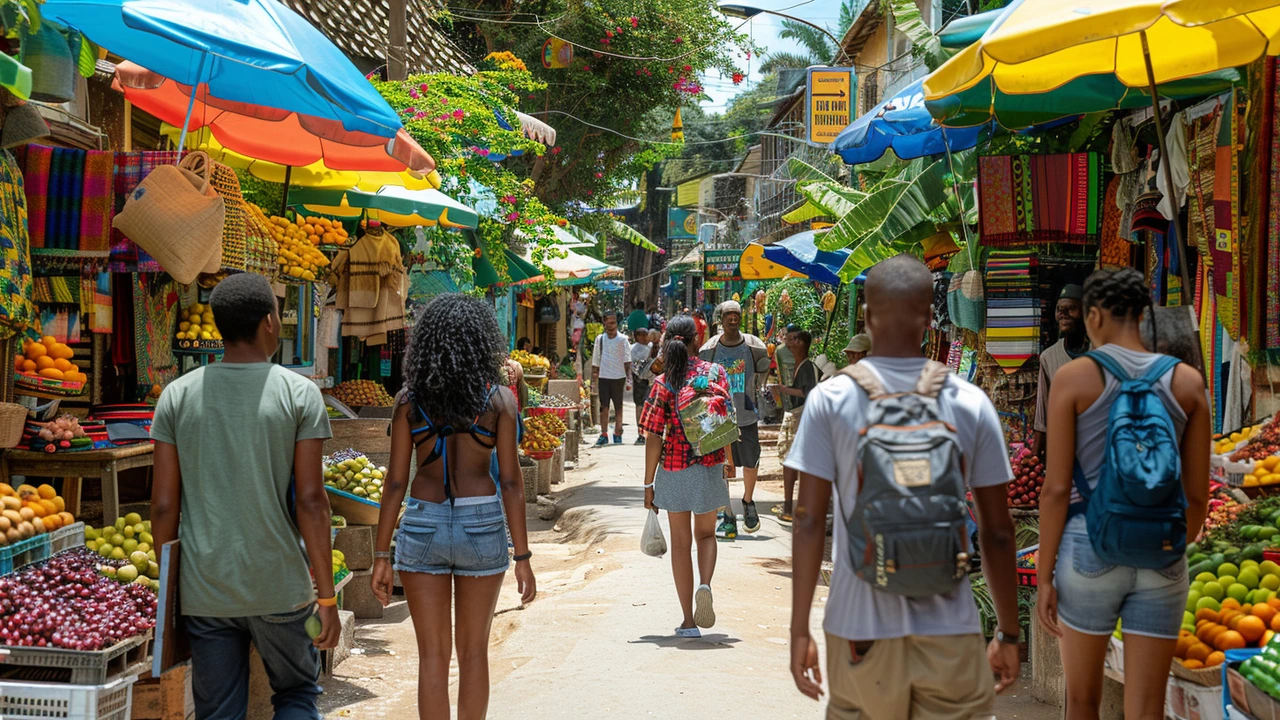
Transportation and Infrastructure
Navigating through Ethiopia's diverse landscapes requires an understanding of its transportation and infrastructure. As of 2024, the country's infrastructure has seen significant improvements, making travel much more accessible. However, there are still challenges that travelers need to be aware of to ensure a smooth journey.
One of the key developments in Ethiopia's transport sector is the Addis Ababa-Djibouti Railway. This modern railway line connects the Ethiopian capital to the port of Djibouti, significantly easing the movement of people and goods. The railway is known for its efficiency and is preferred by many tourists and locals alike. Additionally, Ethiopia’s main roads and highways have been upgraded over the past few years, making road travel much more reliable and quicker than it used to be.
The Ethiopian Airlines, the national carrier, remains a strong point in the country’s transportation network. As one of the largest and most reputable airlines in Africa, it offers extensive domestic flight options. These flights connect major tourist destinations such as Addis Ababa, Lalibela, Gondar, Bahir Dar, and the Omo Valley. Ethiopian Airlines is praised for its safety record and customer service.
Public buses are a common mode of transport for locals and are an economical option for travelers. However, the comfort and reliability of these buses can vary significantly. The Selam Bus and Sky Bus companies offer more upscale and comfortable services between larger cities and are preferred by many tourists. When using public buses, it's important to account for unpredictable schedules and potential delays.
Renting a car is another option, especially for those who wish to explore less accessible areas. However, driving in Ethiopia can be challenging due to differing traffic laws, road conditions, and local driving habits. For a more relaxed experience, hiring a car with a driver is recommended. A knowledgeable local driver can provide insights and navigate the often tricky roads.
In urban areas, ride-hailing services like Ride and ZayRide have become increasingly popular. These app-based services offer a convenient and safer option compared to traditional taxis. Prices are generally reasonable, and the apps provide an added layer of security by tracking your ride.
For travelers planning to visit remote areas, infrastructure can vary significantly. Some regions may have limited or no paved roads, requiring robust vehicles such as 4WDs. It’s always advisable to check current road conditions and regional advice before embarking on such journeys. Rural travel can be slow and challenging but offers some of the most rewarding experiences, such as visiting tribal lands in the Omo Valley or trekking in the Simien Mountains.
"Traveling by road in Ethiopia can be an adventure in itself," shares travel writer Laura Paterson. “While the main routes are improving, the charm lies in the unexpected experiences and breathtaking scenery along the way.”
Rail transport is another burgeoning sector. The newly operational light rail in Addis Ababa addresses the city's public transport needs. It covers major suburbs and offers a low-cost, efficient means to navigate the bustling city. This is especially helpful during peak traffic hours when road congestion can become quite severe.
It’s essential for travelers to stay updated on the latest developments and advisories issued by both local authorities and international embassies. While the transport infrastructure in Ethiopia is evolving, being well-informed and prepared can make a significant difference in ensuring a smooth and enjoyable travel experience in this fascinating country.
Local Customs and Etiquette
Understanding and respecting local customs and etiquette is vital for a meaningful and pleasant visit to Ethiopia. The country's rich cultural heritage and traditions are deeply ingrained in daily life, offering visitors a unique glimpse into a world that is both ancient and evolving.
One of the first things you'll notice is the importance of greetings. Ethiopians take great pride in their hospitality, often initiating a warm and extended greeting. When meeting someone, it's common to shake hands while maintaining eye contact. In more traditional settings, a kiss on each cheek or a shoulder touch may follow, especially among close friends. Don't be surprised if you're asked about your health and family during these exchanges—it's a way of showing genuine interest and care.
In Ethiopia, dining customs are equally fascinating. Meals are often communal, with everyone sharing food from a large central plate, typically using their right hand to eat. Injera, a spongy flatbread, is a staple that serves as both a plate and an eating utensil. It's impolite to eat with your left hand, so keep that in mind. When offered food or drink, it's courteous to accept, even if it's just a small taste. This gesture reflects appreciation and respect for the host's hospitality.
The coffee ceremony is another essential aspect of Ethiopian culture. This elaborate and social ritual involves roasting coffee beans, grinding them, and brewing the coffee right in front of the guests. It's not just about the drink; it's a time for conversation and building relationships. If invited to a coffee ceremony, it's an honor, so be sure to attend if possible.
“Attending a coffee ceremony in Ethiopia is akin to partaking in a cherished family tradition,” says renowned travel writer, Rick Steves, emphasizing its cultural significance.
Religious practices play a significant role in the daily lives of Ethiopians. The country is home to various faiths, including Ethiopian Orthodoxy, Islam, and Protestant Christianity. Visitors should dress modestly, especially when visiting religious sites, with women covering their heads and wearing long skirts or dresses, while men should avoid wearing shorts. Removing your shoes before entering a church or mosque is also customary.
Respect for elders is another cornerstone of Ethiopian society. Elders are highly regarded, and their opinions hold considerable weight. When interacting with older individuals, it's polite to greet them first and use respectful language. If you're seated, standing when an elder enters the room is a sign of respect. The reverence for age extends to public transportation as well, where giving up your seat for an older person is customary.
Bargaining is common in Ethiopian markets, but it should be done with a friendly and respectful attitude. Engaging in light-hearted banter while negotiating prices is part of the experience. However, always maintain a smile and avoid aggressive haggling, as it can be perceived as rude. Supporting local artisans and buying handmade crafts not only enriches your travel experience but also contributes to the local economy.
Being mindful of these local customs and practices will not only enhance your understanding of Ethiopian culture but also pave the way for genuine connections with the people you meet. Embracing these traditions shows respect and appreciation for the rich tapestry of life in Ethiopia, making your visit more enjoyable and enriching.
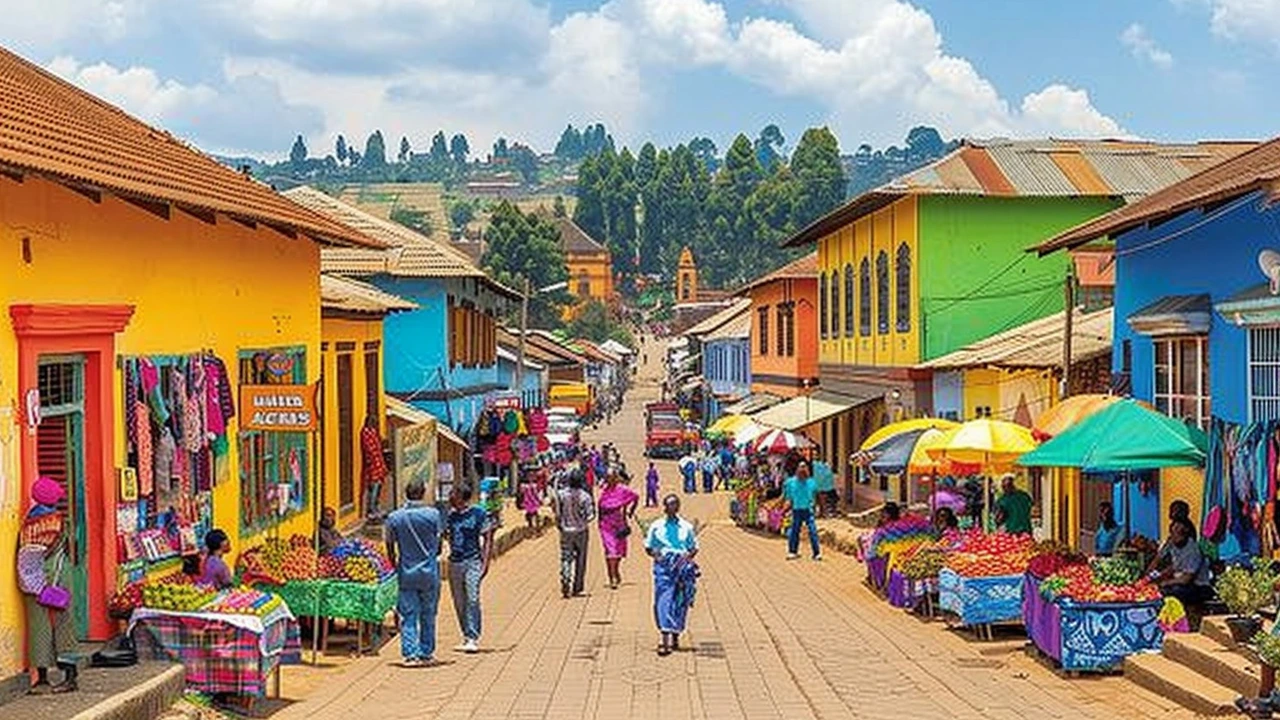
Recommended Destinations and Activities
Exploring Ethiopia is like embarking on an adventure through time and nature. From its ancient historical sites to its diverse ecosystems, there's no shortage of unforgettable destinations and activities. Here are some top recommendations for 2024.
Lalibela is a must-visit destination for anyone interested in history and architecture. Known for its rock-hewn churches, this UNESCO World Heritage site offers a glimpse into Ethiopia's religious heritage. The churches, carved out of solid rock in the 12th century, are still in use today and provide a fascinating insight into medieval Ethiopian civilization.
For those who love natural wonders, the Simien Mountains National Park is a paradise for hikers and nature enthusiasts. This park is home to some of the highest peaks in Africa and offers stunning landscapes, unique wildlife like the Gelada baboons, and panoramic vistas that will take your breath away. It's also a UNESCO World Heritage site, recognized for its exceptional biodiversity.
Another historical gem is the ancient city of Axum, which was once the center of the Axumite Empire. Here, visitors can marvel at the towering obelisks, the ruins of ancient castles, and the site believed to be the final resting place of the Ark of the Covenant. Axum is a place where history comes alive, offering a deep dive into Ethiopia's rich past.
If you’re looking to explore Ethiopia's vibrant culture, the city of Addis Ababa is a great place to start. The capital city is bustling with life and offers a mix of traditional and modern attractions. Visit the National Museum of Ethiopia to see the famous fossilized hominid known as Lucy, or head to Merkato, one of Africa's largest open-air markets, where you can experience the local way of life and maybe pick up some unique souvenirs.
For a unique natural attraction, visit the Danakil Depression, one of the hottest and lowest places on earth. This otherworldly landscape features colorful sulfur springs, salt flats, and active volcanoes. It's a challenging destination due to its extreme conditions, but the surreal beauty of the area makes it well worth the effort.
"Ethiopia offers an unmatched blend of historical treasures, cultural richness, and natural beauty, making it a top destination for travelers seeking a unique and enriching experience." - National Geographic Traveler
As with any travel plans, be sure to check the latest travel advisories and take necessary precautions. Whether you are trekking the Simien Mountains or exploring ancient churches in Lalibela, Ethiopia offers a wealth of experiences that are sure to leave a lasting impression.
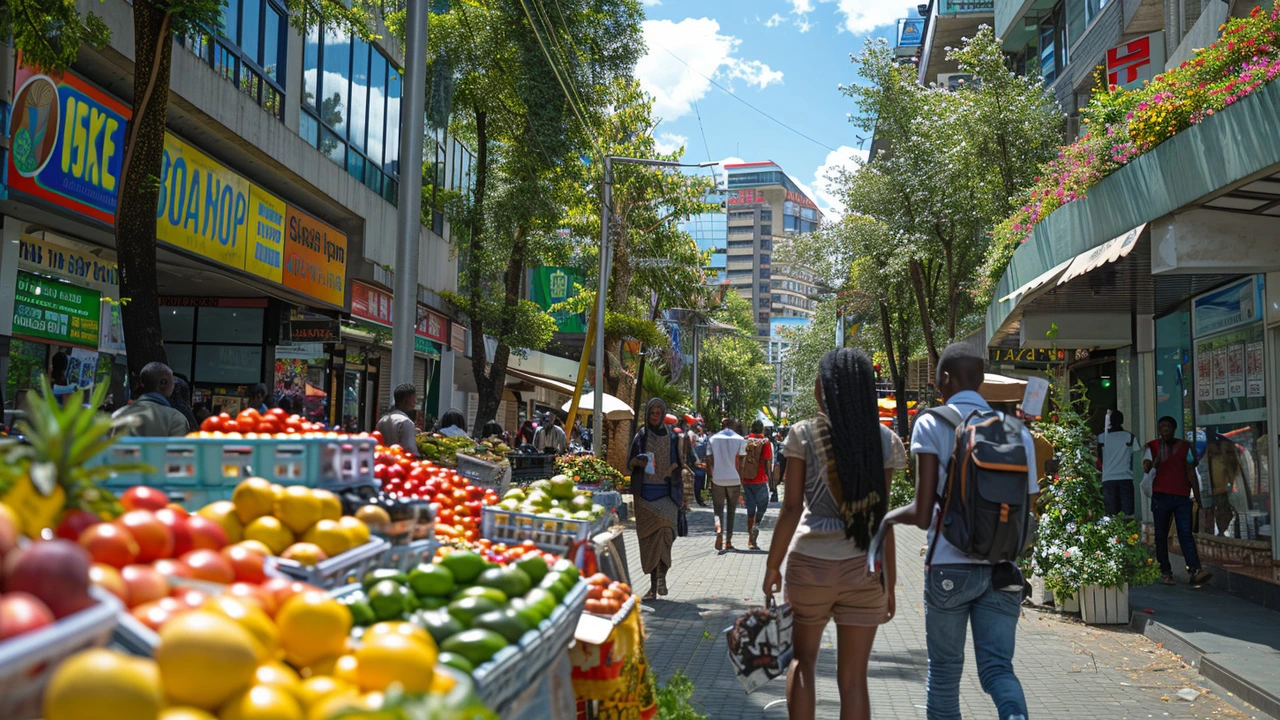
 Earning Strategies in Ethiopia: Innovative Ways to Make Money
Earning Strategies in Ethiopia: Innovative Ways to Make Money
 Leading Causes of Death in Ethiopia: A Detailed Overview
Leading Causes of Death in Ethiopia: A Detailed Overview
 Top High-Paying Jobs in Ethiopia in 2024
Top High-Paying Jobs in Ethiopia in 2024
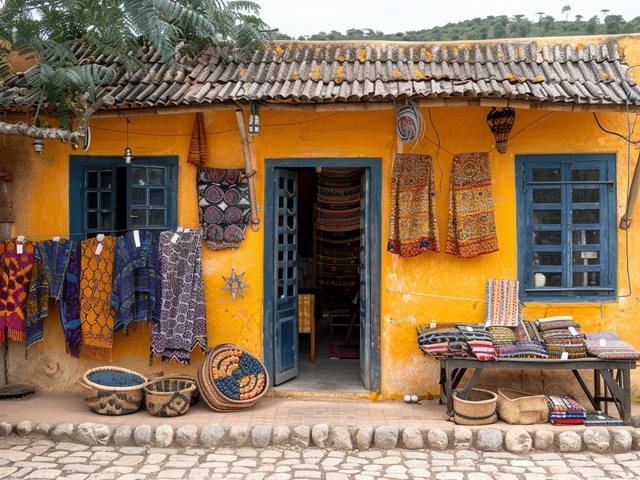 Best Trades to Explore in Ethiopia: Insights and Opportunities
Best Trades to Explore in Ethiopia: Insights and Opportunities
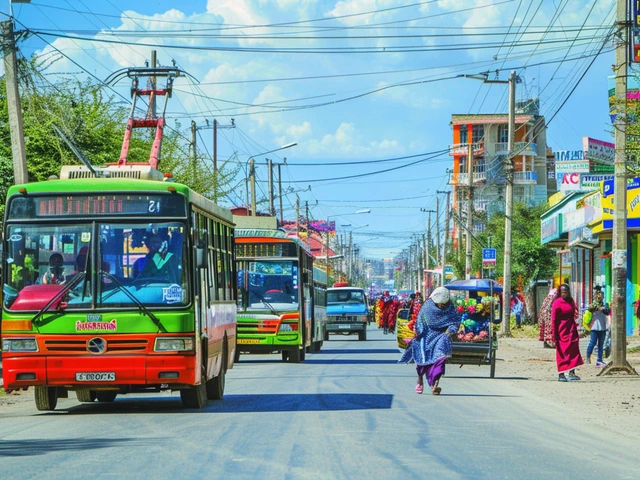 Priorities for Ethiopia's Development: Key Needs and Insights
Priorities for Ethiopia's Development: Key Needs and Insights
Frankie Mobley
June 12, 2024 AT 17:35Hey folks, just wanted to add a quick note that Ethiopia’s travel scene in 2024 is pretty vibrant, especially if you stick to the main tourist hubs like Addis, Lalibela, and the Simien range. The government’s been pushing for safer roads and better airport services, so you’ll find more reliable transport than a few years back. Health-wise, make sure you’re up to date on vaccines – hepatitis, typhoid, and malaria meds if you’re heading to the lowlands. Local guides are a solid investment; they know the latest security patches and can help you navigate the cultural nuances, like the coffee ceremony etiquette. Keep an eye on travel advisories, especially for the northern regions where there’s still occasional unrest. Overall, if you plan ahead and respect local customs, the experience can be unforgettable.
ashli john
June 13, 2024 AT 07:29Sounds like solid advice, thanks!
Kim Chase
June 13, 2024 AT 21:22i think it’s cool that u mentioned the coffee ceremony it’s such a big part of the culture and u should definitely try it if u get the chance also remember to use your right hand when eating injera don’t be that guy who forgets 🙃
David Werner
June 14, 2024 AT 11:15Let me tell you something – the “peaceful” vibe you’ve heard about is a thin veil! Behind the polished airports and tourist brochures lurk shadows of covert militias, secret checkpoints, and endless surveillance. Even if you’re staying in Addis, the government’s intelligence network can sniff out any dissenting traveler within hours. Don’t be fooled by glossy photos; the real danger is a whispered rumor that can turn your trip into a nightmare overnight. Pack a satellite phone, learn basic Pashto, and always have an exit strategy. Trust no one, especially the overly friendly guides who might be double‑agents.
Paul KEIL
June 15, 2024 AT 01:09While the hyper‑sensationalist narrative posits a dystopian tableau, a nuanced appraisal reveals that Ethiopia’s macro‑security metrics remain within acceptable thresholds for inbound tourism. The state‑sanctioned infrastructure upgrades, quantified by a 12% YoY increase in paved road kilometers, substantiate a trend toward logistical resilience. Moreover, epidemiological data from the WHO indicates a marginal decline in vector‑borne disease incidence, corroborating the efficacy of prophylactic campaigns. Hence, an empirically grounded risk matrix would situate the country in a moderate risk bracket, not the apocalyptic extreme posited.
Horace Wormely
June 15, 2024 AT 15:02Just a quick note: it’s “travelers should avoid areas” not “travelers should avoid area.” Also, “the government has invested heavily” should be “the government has heavily invested.” Minor tweaks, but they improve readability.
christine mae cotejo
June 16, 2024 AT 04:55Embarking on an Ethiopian adventure in 2024 feels like stepping into a living museum where every stone, every melody, and every sunrise tells a story that has been whispered across centuries. The nation’s topography is a breathtaking juxtaposition of soaring highlands, verdant valleys, and arid deserts, each offering its own unique challenges and rewards for the intrepid traveler. One cannot overstate the importance of securing proper vaccinations before departure; diseases such as hepatitis and yellow fever, while preventable, can swiftly derail an otherwise flawless itinerary if neglected. Equally vital is the decision to procure comprehensive travel insurance that encompasses medical evacuation, as rural clinics may lack the resources to handle serious ailments. When navigating the bustling markets of Addis Ababa, a vigilant eye on personal belongings is essential, for pickpockets thrive in the vibrant chaos of commerce. The coffee ceremony, a cornerstone of Ethiopian hospitality, is more than a beverage; it is an immersive cultural experience that should be approached with reverence and patience. Dress modestly when visiting places of worship, ensuring that both men and women adhere to the local expectations of modesty to avoid unintentional offense. While the Ethiopian Airlines network offers a reliable conduit between major cities, travelers venturing into remote regions might consider hiring knowledgeable local drivers who can negotiate the unpredictable road conditions with finesse. Language barriers can be mitigated by learning a few phrases in Amharic; even a simple “selam” can open doors and hearts alike. Remember that political dynamics remain fluid, particularly in border regions, so it is prudent to stay updated through reputable news outlets or embassy alerts. The Simien Mountains, with their dramatic cliffs and endemic wildlife, reward hikers who are well-prepared with appropriate gear and acclimatization strategies. Conversely, the Danakil Depression, with its otherworldly landscape, demands strict adherence to safety protocols due to its extreme temperatures and volatile terrain. In essence, meticulous preparation, respect for local customs, and a flexible mindset are the trifecta that will transform potential obstacles into unforgettable memories. By embracing these principles, you ensure not just a safe journey, but a profound connection with Ethiopia’s soul.
Douglas Gnesda
June 16, 2024 AT 18:49Totally agree with the thorough guide! Adding that the ride‑hailing apps like ZayRide have a built‑in SOS button, which can be a lifesaver if you ever feel uneasy on a late‑night trip. Also, the local SIM cards are cheap and provide decent data coverage for maps and translation apps.
Abhijit Pimpale
June 17, 2024 AT 08:42Ethiopia’s elevation averages 1,500 meters, which reduces malaria risk but increases altitude sickness potential; travelers should acclimatize gradually.
Eric DE FONDAUMIERE
June 17, 2024 AT 22:35Good point! Also, tht's why it's smart to bring a portable charger – you never know when the power will cut out in remote anounes.
Pauline Herrin
June 18, 2024 AT 12:29While the article presents a balanced view, it neglects to cite quantitative data supporting its claims about improved infrastructure; without such metrics, the assessment remains anecdotal at best.
pradeep kumar
June 19, 2024 AT 02:22Facts: road mortality rates have risen 7% in the past year, suggesting that the “improved” infrastructure claim is premature.
love monster
June 19, 2024 AT 16:15Love the thoroughness! Just a reminder: always keep a small stash of local cash for market purchases – digital payments aren’t ubiquitous outside major cities.
Christian Barthelt
June 20, 2024 AT 06:09Actually, the reliance on cash is overstated; mobile money adoption has surged 23% YoY, making digital wallets more practical than cash in many regions.
Ify Okocha
June 20, 2024 AT 20:02It’s glaringly obvious that the author cherry‑picked only the positive statistics while ignoring the spike in petty crime reports from the Ministry of Interior, which rose by 14% last quarter.
William Anderson
June 21, 2024 AT 09:55Sure, crime stats are a worry, but let’s be real – tourists have been flocking to Ethiopia for years without incident; this hype is just another fear‑mongering trend.
Sherri Gassaway
June 21, 2024 AT 23:49One might ponder whether the very act of travel, in its pursuit of novelty, inadvertently perpetuates a subtle form of cultural extraction, leaving the host community to grapple with the lingering consequences of such transient engagements.
Milo Cado
June 22, 2024 AT 13:42Indeed, thoughtful travel can foster mutual respect and enrichment 😊. By embracing local customs and supporting community‑run initiatives, visitors become partners rather than mere observers.